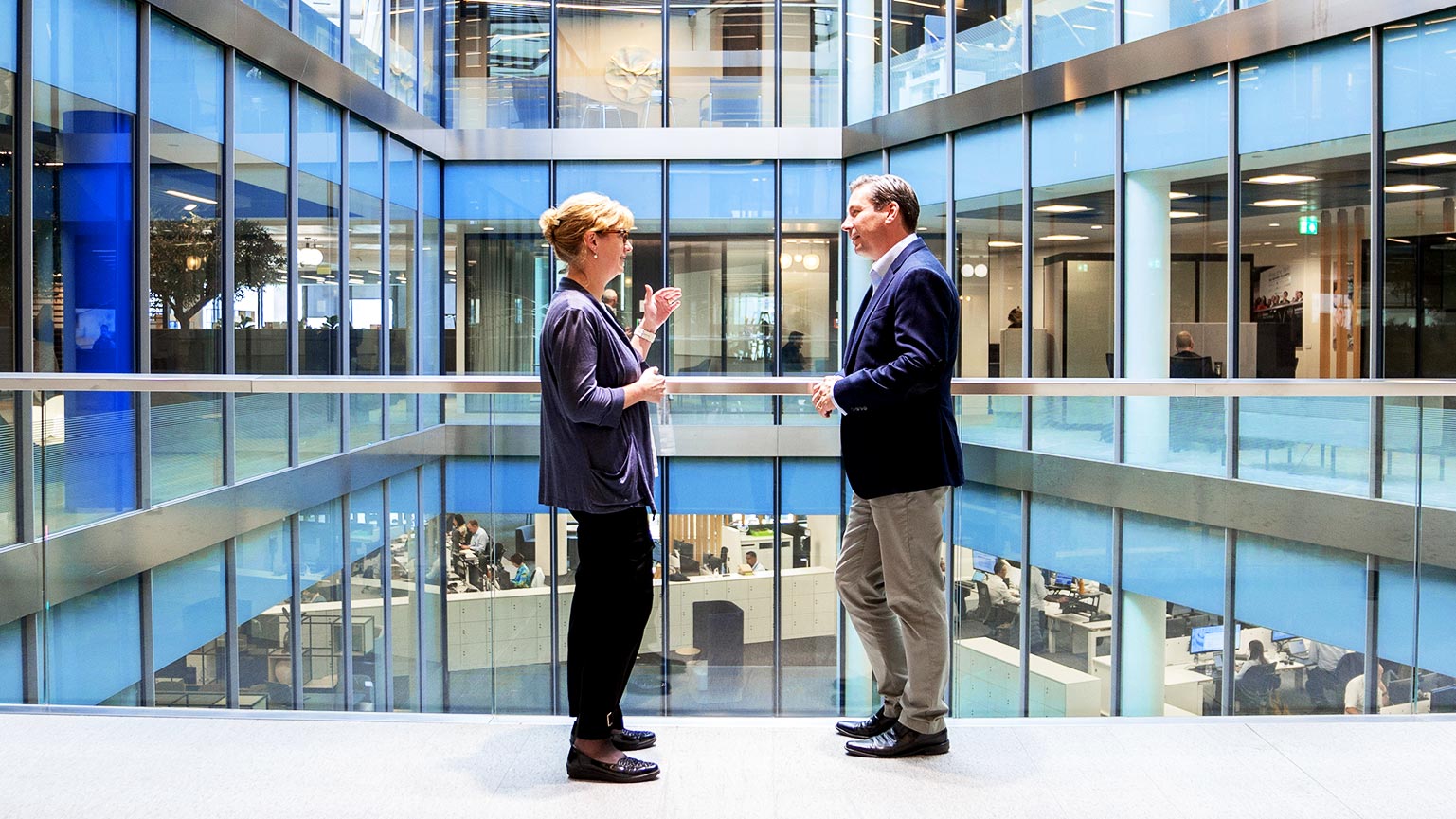Our overarching objective is to be a strategic enabler and steward of sustainable economic growth
We have identified three long-term macro trends – critical for sustainable development – which are highly relevant to the creation of a sustainable economy. These macro trends frame our strategy:
- Climate transition: Based on international agreements to tackle climate change, governments around the world are taking steps to decarbonise economies and reduce carbon emissions; this is having profound impacts on policy, regulation, finance, energy systems and many other industry sectors.
- Growth of the green economy: New products, services, technologies and solutions focused on addressing sustainability challenges are emerging and developing; this is changing traditional industry sectors and bringing new value-creation opportunities.
- Inclusive economic opportunity: Equality, social inclusion and the protection of human rights are critical for sustainable development to ensure that citizens have the opportunity to participate in economic growth.
We deliver on our objective to be a strategic enabler and steward of sustainable economic growth in four key ways:

We partner with our customers, providing market data, insights and infrastructure, to help them adapt to, manage and benefit from the transition to a sustainable economy.
We engage with market participants and policymakers to create standards, practices and policies that underpin a sustainable financial market.
We are embedding sustainability into our business operations, managing sustainability risk, reducing our environmental footprint and supporting diversity, equity and inclusion.
We engage with communities across the world, helping to create economic opportunity through education, enterprise and employment.
Our sustainability goals
To help us pursue our objective, we have set ourselves a number of goals. Progress against these goals is highlighted below. You can read more about our progress in the Sustainability Report 2024 and find more associated quantitative data in the Sustainability Databook 2024.
| Goals | Progress status |
|---|---|
| Reduce absolute Scope 1 and 2 GHG emissions 50% by 2030 from a 2019 base year. | 83% |
| Reduce absolute Scope 3 GHG emissions from fuel and energy-related activities (FERA), business travel and colleague commuting 50% by 2030 from a 2019 base year. | 49% |
| Ensure that 67% of Scope 3 emissions from purchased goods and services are covered by science-based targets by the end of 2026. | 51% |
| Meet our product, service and market engagement climate goals. | On track |
| Maintain at least 40% women in senior leadership (Executive Committee and Group Leaders*). | 41% |
| Reach 25% ethnic minority representation in senior leadership roles (Executive Committee and Group Leaders*) by 2027. | 16% |
| Positively support and impact 1 million lives by 2030, through the LSEG Foundation. | 324,679 |
| 50% of our colleagues taking part in volunteering (annually) by 2030. | 26% |
* Group leaders are the approximate 84 most senior members of LSEG, minus the Executive Committee.
Defining our material topics

The sustainability topics which are of greatest significance to our business are determined through a materiality assessment.
We commissioned an independent materiality assessment in 2021 (the details of which can be found in our 2021 Sustainability Report) and a double materiality assessment in 2024, aligned with the requirements of the EU Corporate Sustainability Reporting Directive (CSRD).
This latest assessment identified topics which are deemed material due to the associated financial risk or opportunity for LSEG, and/or due to the impact our organisation has on people or the environment.
The assessment is being externally assured in 2025 and we intend to publish the results after the assurance process is complete.
Sustainability governance

LSEG has developed a robust governance framework to oversee and manage sustainability. The LSEG Board has ultimate oversight of the sustainability strategy, including its management of climate-related risks and opportunities and its climate transition plan.
The Executive Committee, led by the Group CEO, sets and tracks sustainability goals and reporting. The Sustainability Committee (an Executive Committee-subcommittee) guides the overall sustainability strategy, and the Climate Transition Steering Committee directs our climate transition initiatives.
More detail on specific Committees and their roles can be found on page 12, 13 and 57 of our Sustainability Report 2024.



